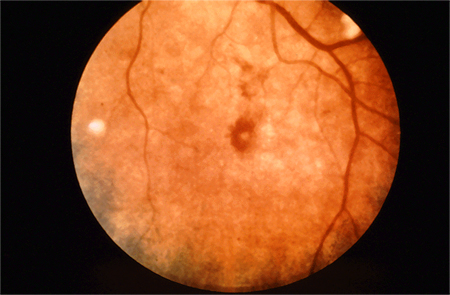Summary
Definition
History and exam
Key diagnostic factors
- presence of risk factors
- fever/chills
- cardiac murmur
- night sweats, malaise, fatigue, anorexia, weight loss, myalgias
- weakness
- arthralgias
- headache
- shortness of breath
- meningeal signs
- Janeway lesions
- Osler nodes
- Roth spots
- splinter haemorrhages
Risk factors
- prior history of infectious endocarditis
- presence of artificial prosthetic heart valves
- certain types of congenital heart disease
- post-heart transplant (patients who develop a cardiac valvulopathy)
- presence of cardiac implanted electronic device or intravascular catheters (e.g., for haemodialysis)
- acquired degenerative valve disease
- mitral valve prolapse (MVP) with valvular regurgitation
- hypertrophic cardiomyopathy
- intravenous drug use
Diagnostic investigations
1st investigations to order
- blood cultures
- echocardiography
- full blood count
- C-reactive protein
- serum urea, electrolytes, and glucose
- liver function tests
- urinalysis
- ECG
Investigations to consider
- rheumatoid factor/other immunological blood tests
- erythrocyte sedimentation rate
- complement levels
- computed tomography
- magnetic resonance imaging
- nuclear imaging and photon emission tomography (PET)
Treatment algorithm
Contributors
Expert advisers
Mamta Buch, MBChB, PhD, FRCP
Consultant Interventional Cardiologist
Manchester University NHS Foundation Trust
Manchester
UK
Disclosures
MHB has received speaker honoraria relating to transcatheter heart valve intervention: Medtronic, Edwards. Advisory board relating to transcatheter heart valve intervention: Abbott. MHB is Education Secretary for the British Heart Valve Society and member of the British Cardiovascular Intervention Society Structural Heart working group. MHB has faculty roles at national and international structural heart intervention meetings.
Acknowledgements
BMJ Best Practice would like to gratefully acknowledge the previous expert contributors, whose work has been retained in parts of the content:
Tracey Keteepe-Arachi BSc (Hons), MBBS, MRCP (UK)
Cardiology Specialist Registrar and Clinical Research Fellow
Department of Cardiovascular Sciences
St George's Hospital Medical School
University of London
London
UK
Disclosures: TKA declares that she has no competing interests.
Aneil Malhotra MA (Hons), MSc, MB BChir, MRCP (UK)
Cardiology Specialist Registrar and Clinical Research Fellow
Department of Cardiovascular Sciences
St George's Hospital Medical School
University of London
London
UK
Disclosures: AM is an author of a number of references cited in this topic.
Michael Papadakis MD, MRCP (UK)
Clinical Lecturer in Cardiology
St George's University of London
London
UK
Disclosures: MP declares that he has no competing interests.
Peer reviewers
Bernard Prendergast, BMedSci, BM, BS, MD, FRCP, FESC
Professor of Interventional Cardiology and Valvular Heart Disease
St Thomas' Hospital
London
UK
Disclosures
BP declares that he has no competing interests.
Brian Angus, BSc MBChB, MD, FRCP
Professor
Oxford University
The John Radcliffe
Oxford
UK
Disclosures
BA declares he has no competing interests.
Use of this content is subject to our disclaimer

